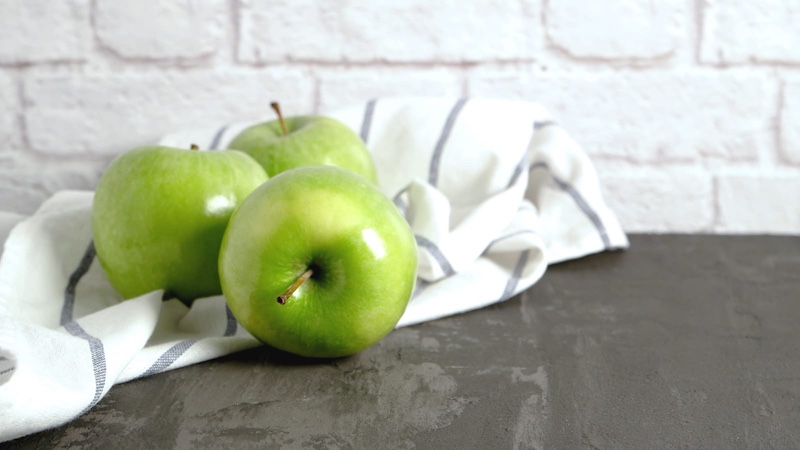Apples. Crisp, sweet, tangy—these delightful fruits are not only versatile and delicious but also surprisingly resilient. Yet, one question has plagued apple enthusiasts since the dawn of refrigerators: Should apples be refrigerated? As a self-proclaimed apple aficionado (and someone who’s been known to carry a Honeycrisp in their bag “just in case”), I’m here to peel back the truth on this age-old debate.
The Great Refrigeration Debate
First, let’s get to the core of the matter. Do apples need to be refrigerated? The short answer: no. Apples can happily sit on your counter without any immediate consequence. But the long answer? Well, that’s where things get interesting.
Refrigeration isn’t about whether apples can survive at room temperature (spoiler: they can). It’s about how long you want them to stay fresh.
When apples are kept at room temperature, they’ll usually last about a week, give or take. If you’ve got a bustling household with apple munchers galore, that’s probably all you need. But if you’re the kind of person who buys apples in bulk—or if you’ve just returned from an orchard with a bushel of the juiciest finds—then refrigeration is your best friend.
The Science of Chilling
Here’s where my inner fruit nerd shines. Apples are climacteric fruits, which means they ripen after being harvested. They release a natural gas called ethylene, which speeds up the ripening process. The warmer the environment, the faster this process unfolds. That’s why your apple bowl can go from crisp to mealy in just a few days if left in a sunny kitchen.
By refrigerating apples, you’re essentially hitting the pause button on their ripening journey. Cooler temperatures (around 30–40°F) slow down ethylene production, giving you up to six weeks (or more!) of fresh, crunchy apples.
How to Store Apples Like a Pro
Now, if you’ve decided to give your apples the VIP treatment (Very Important Produce), there are a few storage tips to ensure maximum freshness:
- Bag ‘Em Up: Place your apples in a perforated plastic bag. This keeps the moisture levels balanced and prevents shriveling while still allowing ethylene to escape.
- Keep Them Solo: Apples don’t play well with others—at least not in the fridge. Their ethylene can cause nearby fruits and veggies (like lettuce or bananas) to spoil faster. Give them their own drawer or section.
- Check for Bruisers: One bad apple really can spoil the bunch. Inspect your stash and remove any with bruises or soft spots.
Counter vs. Fridge: When to Choose
Let’s talk lifestyle. If you’re planning to devour your apples within a few days of purchase, the countertop is fine. Room temperature brings out their natural sweetness, making them a treat to bite into. Plus, a beautiful apple display bowl doubles as kitchen décor.
But if you’re a meal planner, smoothie maker, or pie enthusiast who wants to stretch their apple supply, the fridge is where the magic happens. You can even mix it up—keep a few apples out for immediate snacking and store the rest in the fridge for later.
Myth-Busting: Will Refrigerated Apples Lose Their Flavor?
Ah, the age-old concern: does refrigeration sap apples of their flavor? The answer is… not really. While it’s true that overly cold temperatures can dull the crispness and aroma of certain fruits, apples are pretty hardy. As long as you don’t freeze them (please, for the love of Granny Smith, don’t), their taste should remain intact.
Final Thoughts: The Best of Both Worlds
So, should apples be refrigerated? It depends on your lifestyle, your apple habits, and your desire for long-lasting fruit. Personally, I like to keep my options open—two on the counter for snacking, the rest chilling in the fridge like backup dancers waiting for their spotlight.
At the end of the day, whether you refrigerate or not, the most important thing is this: eat your apples! They’re delicious, nutritious, and versatile. And if you ever find yourself with a surplus, just whip up some applesauce or bake a pie. Trust me, apples don’t mind how they’re stored as long as they’re appreciated.
